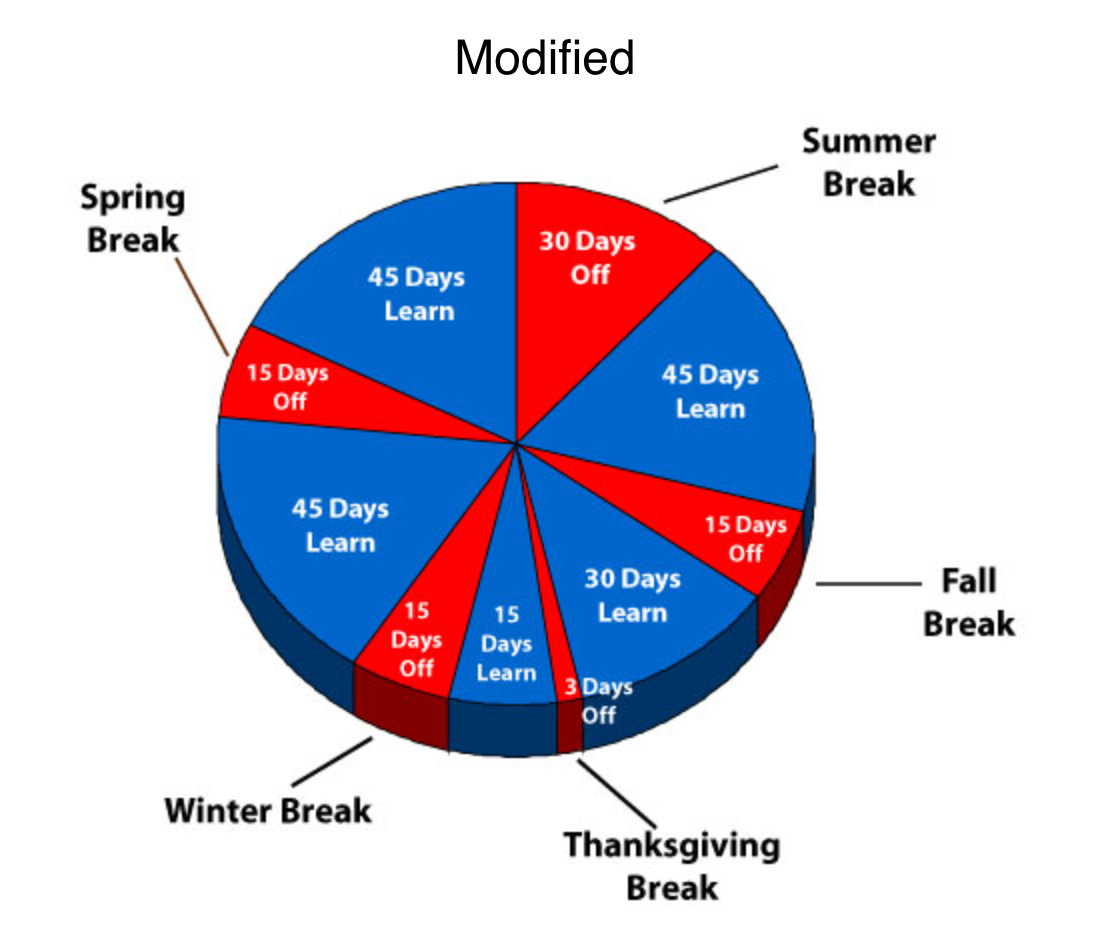Could year-round schooling end The Achievement Plateau?
Do students benefit from an offseason?

Yesterday I bid farewell to my staff for the summer. For the next 71 days, it’s just me, the building team, and the neighbor whose dog, much to our objection, pees on our front lawn. For students, their offseason is even longer — they’ll get 82 days of pure, summer bliss.
That long absence from school got me thinking about inertia which got me thinking about whether year-round schooling might be better for students and staff.
According to Wikipedia, “Inertia is the resistance of any physical object to any change in its velocity.” I wonder if there’s such a thing as educational inertia. That is, once we get students learning, does educational inertia keep them going? And, similarly, once they stop learning, does educational inertia make it harder to start them back up again?
First, let’s dispel the myth that our current school calendar is based on the agrarian calendar. It’s inaccurate. Anyone with a garden could tell you that spring and fall, not summer, are when extra hands are most-needed for planting and harvesting. This PBS article explains more about the true history of the current calendar.
Typically year-round schooling advocates say it helps mitigate “summer slide,” the loss of learning throughout the summer. But there’s some 2019 research that suggests summer learning loss isn’t as bad as once thought. Still, year-round schedules have garnered renewed interest as a potential weapon to combat pandemic-related learning loss.
Other districts move to a year-round schedule to alleviate overcrowding and avoid constructing new schools, using multiple “tracks” to cycle students in and out of buildings throughout the year.
The most common year-round schedule involves nine weeks of teaching followed by a three-week break, with a slightly longer break during the summer. Students still get around 180 days of instruction — the standard across the country.
So if schools switched from the traditional calendar — one with a giant, 10-12 week summer break — to that year-round or “balanced” schedule, could it help end The Achievement Plateau?
The short answer is: the research suggests “no.” Basically, students in year-round schools learn more over the summer, but that additional learning gets erased during the subsequent breaks in the year-round schedule. It turns out that even a few weeks off can decelerate student learning and present a battle against educational inertia.
But this past year has shifted the way we educate students. It would be a shame if we simply ignored all the instructional practices we’ve mastered through virtual and hybrid instruction. And I’m wondering if we could translate some of those virtual and hybrid instructional practices to make year-round school more impactful.
For instance, students in year-round schools are most successful when offered remedial intersessions during the short breaks. This is particularly true for low-achieving students. After a year of virtual lessons and teachers’ newly-acquired skills for developing “asynchronous” lessons, I’m wondering if there aren’t new opportunities to use those intersessions to help accelerate student learning and stop student learning from grinding to a halt.
We know that most professional athletes stick to strict training schedules during their offseason to maintain their fitness, so shouldn’t students — and staff — do the same? Joel Embiid cleaned up his offseason conditioning this past year, only to finish 2nd in MVP voting (he was robbed) and lead the Sixers to an ongoing playoff run that is looking more and more dire after last night’s loss and Embiid’s lackluster performance sorry for the run-on this happens when I get frustrated. This year, because of Wednesday deep-cleaning, we had weekly professional development opportunities with staff. When we return to the traditional schedule, we’ll get barely a handful all year. Intersessions could be used for offseason conditioning for teachers.
I’ve barely scratched the surface of year-round school and innovative ways it might be used. There’s a lot more to write about here. But, speaking of offseason’s, it’s been a long, exhausting year for this principal, and I’m looking forward to some downtime this summer. I’ll still be writing newsletters periodically throughout the summer, and I also need some time to rest and recharge. And maybe students and teachers do too.
Thanks for reading, and have a great week.
